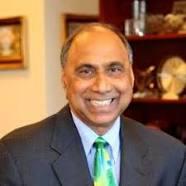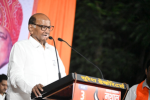
Washington: More than a quarter million tech professionals have lost their jobs in the US since the beginning of 2022, with 95,000 of those job losses occurring in the first six weeks of this year. This shows that the technology industry in the United States of America is shrinking.
This reduction in tech staffing in 2023 has occurred across the country. It has been especially heavy among the tech behemoths.
On Monday, February 6, Texas-based Dell announced that it was laying off 6,500 employees, or 5 percent of its work force. This computing giant’s announcement came just days after four West Coast mega-firms, Amazon, Alphabet (the parent firm of Google), Meta (Facebook’s holding company) and Microsoft, together, eliminated more than 50,000 high-paying jobs.
Among those laid off are thousands — potentially tens of thousands — of Indian Americans and Indian nationals working in the U.S. on H-1B visas. The question becomes what will be the short and long-term impact for these workers?
The antecedent question that must be addressed in order to answer that question is why is Big Tech downsizing, less than three years after they went on a hiring spree?
Nearly all companies that laid off employees blamed macro-economic factors, such as a decrease in revenue and a potential impending recession, for slashing the size of their workforce.
Alphabet CEO Sundar Pichai indicated in an email to employees that the retrenching is part of a course-correction. “Over the past two years we’ve seen periods of dramatic growth,” he wrote. “To match and fuel that growth, we hired for a different economic reality than the one we face today.”
During the covid-19 pandemic period, while many sectors of the economy shrank, the tech industry went on a talent hunt that some analysts say might have resulted in as much as 20 percent excess workers. The industry made use of historically low interest rates to borrow and finance their miscalculated growth projections.
Now with borrowing becoming costlier, growth and profitability is predicated on staff reductions, operational cost-cutting, and revenue generation. This need is also driven by the fact that last year many of these companies also saw their market cap dwindle significantly.
According to the consumer market data platform Statista, NASDAQ ended 2022 down more than 33 percent. Apple, Microsoft and Alphabet saw “their share price drop 27, 29 and 39 percent, respectively, versus 19 percent for the S&P 500, Amazon and Meta did even worse, as their valuations were cut in half (Amazon) or by almost two thirds (Meta),” it said
While the economic headwinds are there, it is worth noting that, in January, the same month U.S. the tech industry shed nearly a hundred thousand jobs, the U.S. economy added more than half a million jobs. And, just days after releasing 10,000 employees, Microsoft announced a multibillion-dollar — as much as $14 billion — investment in OpenAI, which developed ChatGPT, Silicon Valley’s new flavor of the month.
It appears that people are expendable but robots and other investments are not. Employees are paying the price for mistakes made by managers and executives.
The demographic group that is bearing the brunt of the layoffs, probably more than any other community, is Indian tech professionals who are working in the United States on H-1B visas.
While there is no data on the number or percentage of H-1B holders who lost their jobs in the current layoffs, news reports and social media posts indicate a significant number of them may have. No matter what the final number is the impact upon them will be personal in the short term and could be political in the long term.
Under normal circumstances, in the tech industry where jobs are plenty, laid off workers get rehired fairly quickly, typically within three months. But in the case of H-1B visa holders, there is an additional layer of complexity: their stay in the country is linked to having a job, with a visa. If an H-1B holder gets fired, they must land a job within 60 days and the new employer must sponsor the visa. Otherwise, they will have to leave the country.
This requirement causes unimaginable stress and anxiety to H-1B holders who receive pink slips. Many have spouses who do not have a job and children who attend schools. On top of that, there are those that have home and car loans.
With their future becoming a huge question mark, many of these employees end up working for anyone that is willing to sponsor a visa. This can be in much lower-paying jobs not related at all to their profession.
Another potential consequence of the current industry-wide layoff is that it might make the H-1B program, which for decades has been a steady supplier of talent for America’s tech industry, more unpopular on Capitol Hill.
Historically, Indian nationals have obtained an overwhelming majority of H-1B visas. In 2021, nearly 75 percent of all H-1B visas went to Indians.
A standard defense offered by the supporters of the visa program, including Indian government officials, has been that unemployment in the tech sector is far below the national average. But, now in the face of massive retrenching, that argument might not hold water. This being the beginning of a presidential election cycle, lawmakers and candidates who have consistently opposed H-1B are likely to double down on their efforts to impose more restrictions on the visa program.
Former president Donald Trump his opposition to H-1B effectively to garner support of economic nationalists, nativists and anti-immigrant groups within the Republican party when he first launched his presidential campaign in 2015. Although he mostly kept mum on H-1B while he was in office, Trump, who has announced his candidacy for the presidency in 2024, is likely to revisit his old playbook again.
It is too early to predict what the full and permanent impact of these tech layoffs will be on the H-1B program and on the Indian economy. If the reading of the tea leaves by the U.S. tech industry on recession turns out to be correct, however, then its effect will be enormous. India should be prepared for that eventuality.
(Frank F. Islam is an Entrepreneur, Civic leader, and Thought Leader based in Washington DC. The views expressed here are personal)
—INDIA NEWS STREAM



 by Frank F. Islam
by Frank F. Islam
















